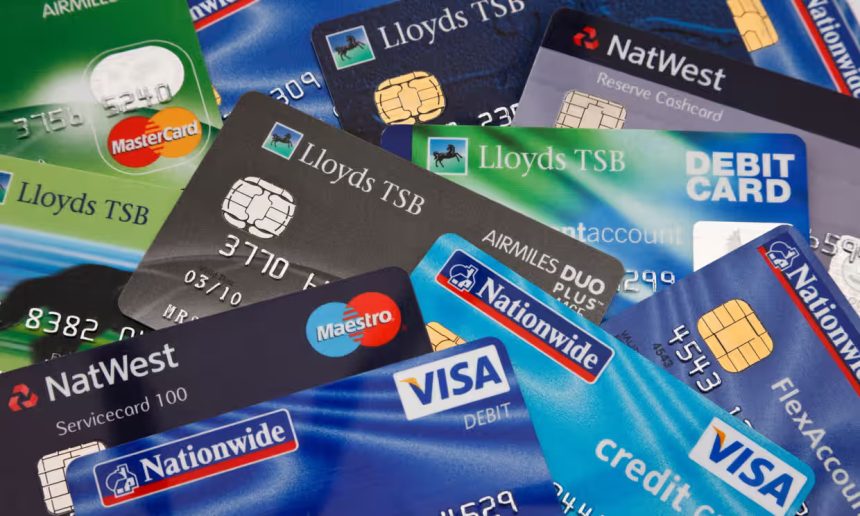- What are the banking options in the UK?
- Which account type is better for international students to open an account?
- How do I close/cancel my bank account if I am not happy with my bank?
Every year, many new students need help figuring out the above questions about bank card and account types in the UK. This is understandable, as the bank card is the most common payment method in the UK. Apart from shopping and eating in restaurants, even travelling on public transport can be paid for with a bank card (with the Contactless Payment function). In our previous blog, we have already introduced you to the major banks in the UK and how to open a bank account. This time, let’s look at the common types of accounts and bank cards available in the UK. This will make it easier for you to choose which one you want to bank with when you arrive in the UK.
Common types of UK bank accounts
Current Account
Current Account is the most common type of bank account in the UK. A cash account supports the payment of everyday purchases, deposits of funds, as well as basic operations such as money transfers. Banking services under a cash account include but are not limited to Cheques, Debit Cards, Direct Debit, cash withdrawals from ATMs, and Bank statements.
There are many sub-categories of cash accounts. In the case of HSBC, they have the Children’s Bank Account, designed for children and teenagers aged 7-17. And the Graduate Bank Account, for recent university graduates. The account categorisation aims to help the bank provide more accurate services according to the different needs of different groups of people. When choosing a bank account, members are advised to compare several banks and ask for specific interest rates and overdraft limits before deciding.
Savings Account
A Savings Account, as the name suggests, is an account that is mainly used for deposits. This type of account usually corresponds to a Cash Card or no physical card. If you don’t have a physical card and want to withdraw cash, you need to go to the human service counter of the bank (some banks may need to make an appointment in advance). Generally speaking, international students will choose the combination of a Savings Account and a current Account: deposit money in a Savings Account and transfer it to a Current Account for daily spending when needed.
Student Account & International Student Account
Many banks have set up “Student Accounts” for students and international students, which offer more benefits than other accounts. Take HSBC’s Student Bank Account as an example. Firstly, the account does not charge any monthly or annual fees. Secondly, it offers an interest-free £1,000 overdraft facility for the first year; in the third year, if your credit is good, the overdraft facility can rise to £3,000. On top of that, you can book an appointment with a financial expert to give you some financial advice. Of course, the services offered by each bank will vary, so you can check the details and specific conditions of opening an account at your favourite bank.
Types of Bank Cards in the UK
Debit Card
A Debit Card is usually a companion card to a Current Account. It uses the funds on your card for all everyday purchases, including online purchases, for which the card is accepted. Debit cards can also be used to sign up for Direct Debit, a “recurring payment”; this usually occurs when signing up for a mobile phone contract, getting a loyalty card, or paying utility bills. The front of a debit card usually has a 16-digit Card Number, an 8-digit Account Number, a 6-digit sort code, the cardholder’s name and the card’s expiry date. On the back of the card, there are 7 digits on the right side of the signature, of which the last 3 digits are the card’s security code (don’t let other people know it). In online shopping and other operations, you generally need to fill in the 3-digit security code to pay.
Credit Card
Credit cards are mainly used for overdrafts and purchases. The two most common types are MasterCard and VISA, which are universally accepted. Generally, suppose you repay your credit card within 30-56 days of making a purchase. In that case, you will not be charged any interest (however, each bank has a different “zero interest repayment” period, so you should be sure to follow the requirements of your own bank). The information displayed on the credit card (e.g. account number, expiry date, cardholder’s name, security code, etc.) is basically the same as that of a debit card. It is important to note that the signature on the back of the credit card is essential. Generally, when you shop at a shopping mall, the cashier will check whether your signature is the same as the one on the card.
However, credit cards in the UK are very much about “personal creditworthiness“. If you are new to the UK, your creditworthiness is considered zero, so you can only try to apply for a credit card six months after applying for a cash account. There are many different types of credit cards available from various banks, such as Credit Building Credit Card, specially designed for those who want to improve their creditworthiness, and Rewards Credit Card, a rewards programme. You can compare and contrast them according to each bank’s requirements, features and benefits.
Cash Card
The main purpose of a Cash Card is to support the cardholder to access cash in the bank or ATM; generally, a Savings Account cash card, or is the most common Cash Account cash card, can not be used in the shop or other daily consumption of the card (mainly because of the lack of a 3-digit security code), and will have a daily There is a limit on the amount of cash you can withdraw (this varies from bank to bank and is usually between £200-£400). Most Cash Cards cannot be overdrawn.
Precautionary note of UK band card and account
Overdraft
Most Current Accounts offer an Overdraft. However, the exact overdraft limit and interest charges may vary according to different banks, account types and credit worthiness of the cardholder. Some banks’ Student Accounts offer students a certain amount of “zero interest overdraft”, such as the HSBC Student Account mentioned earlier, which offers a zero interest overdraft of £1,000 for the first year. When choosing tpes of bank account, you must ask about the specific overdraft limit, repayment time limit and interest charges to avoid the risk of being charged.
Warm Tip
When you apply for a bank card in the UK for the first time, there are still a lot of issues that you need to pay attention to:
- Before opening a card account, pay attention to whether there is an annual or monthly fee.
- Try to choose a bank close to where you live or your University so you can go to the bank directly afterwards.
- When opening an account, remember to ask the bank to provide you with your international bank account, IBAN and BIC/SWIFT number so that your family and friends in China can send you money.
- Remember to open Online Banking and Mobile Banking; each bank has its own official App. Even if you return to your home country during holidays or travelling, you can check your account anytime and anywhere online.
- UK bank cards have expiry dates. A month or so before the card expires, the bank will send you a new card (usually with the same PIN). Please update your address in time to avoid not receiving a new card, letter or bill from the bank.
- Pay attention to the safety of your personal property in the UK. Remember not to disclose the 3-digit security code and your password to others.
This blog briefly introduces the common types of bank cards and accounts in the UK. You can go to each bank’s official website to research before you apply. If you have any other questions about bank cards in the UK, you can ask them in the comments section below.
For more tips on living in the UK, please read our other blogs.












